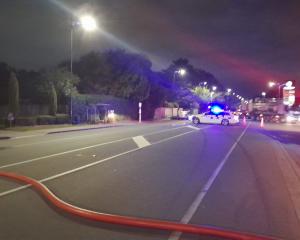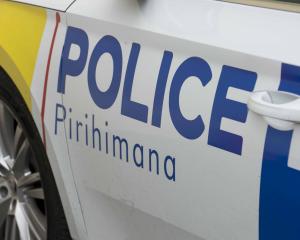The partner of a grandmother killed in a crash with a woman being pursued by police is calling for a law change to allow officers to confiscate car keys from suspected drink-drivers before they undergo a breath test.
Penelope Rae Phillips, 51, died after a collision with a car driven by drink-driver Frances Carol Stubbs, 20, who fled a police alcohol checkpoint in Blenheim on March 19 last year.
The incident was one of two fatal pursuits in which the Independent Police Conduct Authority (IPCA) today found police had followed proper procedures and acted lawfully.
In the case of Mrs Phillips' death, Stubbs had been stopped at a police checkpoint about 9.45pm.
She failed an initial breath test and the officer asked her to pull over to the side of the road to undergo an evidentiary breath test.
Instead, Stubbs took off and police then pursued her.
Stubbs hit Mrs Phillips' car at a roundabout. The 400m chase lasted just 15 seconds.
Stubbs was found to be 40mg over the legal blood alcohol limit of 80mg per 100ml of blood.
She pleaded guilty in August last year to excess blood alcohol causing death and was sentenced to eight months home detention and 160 hours of community work. She was also disqualified from driving for 3-1/2 years.
Families of both the victim and offender raised concerns that police did not remove Stubbs' keys from the ignition at the checkpoint.
However, the IPCA found police would not have been justified in doing so.
The authority noted Stubbs had only completed the first part of the breath test and it was not standard procedure for police to remove keys at that point.
Mrs Phillips' partner, Neil Jorgensen, said the report did not bring any more clarity over what had happened.
"It was 15 seconds of mayhem, it really didn't give anybody a chance to do anything, did it,'' he told APNZ.
He called for a law change to allow police to confiscate keys before a breath test if they suspected drink driving.
"If cops smell booze on your breath, pull the keys,'' Mr Jorgensen said. "If somebody smells of booze or there's booze in there, get them to step out and blow the breathalyser.''
Stubbs' father, Blenheim lawyer Peter Stubbs, said the standard procedure of breath-testing people at checkpoints before asking them to pull over was inadequate.
"Surely that's asking for trouble, if someone's prone to panic or a young person who might make a hasty and wrong decision, which is exactly what happened with our daughter,'' he told APNZ
"It's happened before, and I'm sure it will happen again.''
Mr Stubbs said he understood the reasons for the checkpoint procedure, given the logistical problems of manpower and traffic flow police faced.
But he said the set-up allowed people to do "a runner''.
"They've only got a runner because they've put themselves in a position to get a runner, because people don't have keys taken off them, or have some kind of system where the traffic is slowed,'' he said.
Tasman police district commander Superintendent Gary Knowles welcomed the report.
"The officer had no legal authority to remove Stubbs' keys and I would not expect him to do so. The officer had not had the opportunity to conduct an evidential breath test so did not know whether Stubbs had broken the law,'' Mr Knowles said.
"I have complete confidence my officer conducted his duties in a professional and appropriate manner and I am pleased the IPCA supports this view.''
The IPCA also released a report today on a pursuit in Auckland last year in which two people were killed and two others were seriously injured.
Passengers Jaycheree Makakea and Joseph Tawhai, both 20, died after a Honda Integra crashed into a power pole in Onehunga on September 17.
Driver Aaron Tulafono, 20, pleaded guilty to manslaughter and was sentenced to 6-1/2 years prison in February this year.
The authority found the pursuit was justified and police complied with policy in terms of contact with the communications centre, except for "minor oversights'' in acknowledging its warning.
Pursuit speeds were not excessive and the decision to break off the chase was sound.











